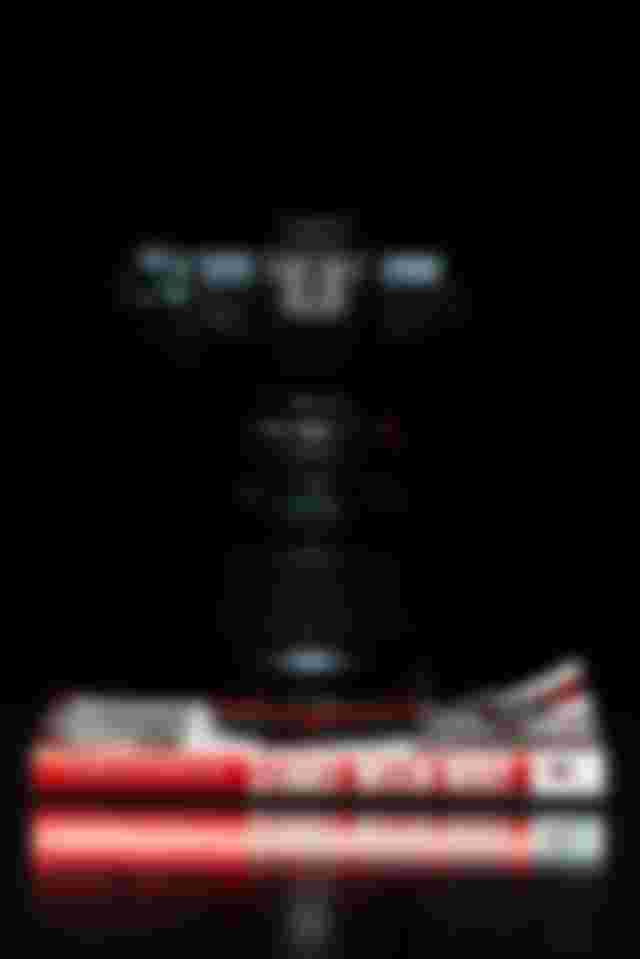
Photo credit: Suzy Hazelwood
Causality, put simply is cause and effect, but is causality deterministic in nature , "always producing the same output from a given starting condition", or can we through choice, change any part of the equation, thereby achieving a different outcome altogether?
On the face of it, cause leads to effect in mono-directional determinism, such that the effect potentially becomes, in due course, a new cause in itself, creating a new effect or effects down the line, and thereby exhibiting what is known as circular causality.
There is no doubt that in the pure sciences in particular, one can assign clear laws, proofs and theorems. Causality can be seen as 'if this, then that' (deterministic) or 'if that, then probably this preceded it' (probabilistic). Both are valid perspectives of the causal chain and can co-exist. Under certain conditions, the same result will happen over and over again, and we have no power or control over that result. But is it possible for causality not to result in a predetermined outcome, and if so, what is it that needs to change to prevent the predetermined effect from happening?
The answer may lie in an analysis of the variables of the equation. Arguably if a given cause always leads to a predetermined effect then causality is the constant and cause is the only variable that one can change, in order to change the outcome. You cannot expect different results or 'effects' if you keep hitting your head against the same brick wall!
Another option may be to introduce a 2nd or 3rd variable into the equation which serves to counteract, to a greater or lesser degree, the first variable (the cause), so that the outcome (or effect) is thereby changed sufficiently enough, so as to be different.
To this end, a lot of people will be familiar with the The Butterfly effect - the idea that there exists a "sensitive dependence on initial conditions". That a butterfly could flap it's wings on one side of the world and cause a tornado on the other. That one small change can bring about larger consequences in a system. The idea was first postured by Lorentz in 1963, and the phrase later coined by Philip Merrilees in 1972 in his paper 'Does the flap of a butterfly's wings in Brazil set off a tornado in Texas?'
The linked Wiki article on The Butterfly Effect states "The butterfly does not power or create the tornado...(but) the flap of the wings is a part of the initial conditions of an interconnected complex web; one set of conditions leads to a tornado, while the other set of conditions doesn't. The flapping wing represents a small change...had the butterfly not flapped its wings, the trajectory of the system might have been vastly different - but it's also equally possible that the set of conditions without the butterfly flapping it's wings is the set that leads to the tornado".
In science, by tweaking the inputs (cause), you change the outputs (effect). By changing the control environment (the initial conditions), you can change the results or effects of an action. Therefore, 'cause' as the variable in causality can be changed to force a different outcome or effect, or at the very least, one could introduce a new variable or remove part of the existing variable to change the outcome. This, arguably, will then result in a different cause with a different effect which could still be seen, in itself, to be deterministic in nature.
If causality is deterministic, and we can change the causal input to result in a different impact, why is this not pursued more regularly and actively in the social and political sciences, and if the cause seems beyond our control, how do we go about achieving a different outcome? It has been postured that causality only remains predetermined, fatalistic even, because we focus too much on the what and how of causality, when our attention should instead be focussing on the why. So instead of focussing on the actual cause and the actual effect, 'if A then B', we should instead seek to understand why cause A occurred, and why effect B results. It is only in understanding the answers to the 'why' question, which in my view demands an analysis of the human state, an analysis of human nature, that we can truly address the deterministic nature of causality and seek to change the direction of causality. To understand the 'why' is to understand what underpins the original choices made that drove the decisions and actions (the cause) which resulted in the said outcomes (effect (s)).
One of the most interesting discussions of causality that I have come across over the years, and which has stuck with me, is actually something that came out of a Hollywood blockbuster film trilogy. The Matrix trilogy created by the Wachowskis , explored a lot of interesting themes around control, freewill and causality. There is a very intriguing conversation in 'The Matrix Reloaded' (Part 2 of the trilogy) that takes place between Neo (the main human character who is heralded as 'The One' who will free humankind from their enslavement by their machine masters) and the Merovingian (a programme created by the matrix which resides within the matrix) in which the Merovingian says to Neo:
"Choice is an illusion, created between those with power, and those without...there is only one constant, one universal. It is the only real truth. Causality. Action, reaction. Cause and effect... Beneath our poised appearance, the truth is we are completely out of control. Causality. There is no escape from it, we are forever slaves to it. Our only hope, our only peace is to understand it, to understand the why. 'Why' is what separates us from them, you from me. 'Why' is the only real social power, without it you are powerless. And this is how you come to me, without 'why,' without power. Another link in the chain."
Source: Merovingian transcript
What he is in effect saying is that causality exists as a constant because free will does not, and if we lack true free will due to the control of others, then our choices are predetermined and causality cannot be escaped. All we can seek to do is understand it; to see beyond the choices that were made, to understand the 'why', otherwise we will simply be reactive to cause and effect, we will empower it and remain slaves to it. We will respond to each cause and effect in turn as they present themselves, becoming another link in the causal chain. If instead we get to the root of the why and understand the why, we may then be able to overcome the control exercised by causality, to change the narrative once and for all. It is in understanding the 'why' that you gain power, and that then helps one to reverse the direction of causality, instead of simply becoming another ripple in the pond, another link in the deterministic linear chain of events in time. In doing so, we may find ourselves no longer destined to make the same mistakes repeatedly.
Whilst writing this, I came across a news article on Skynews.com The Big Thaw which explores and discusses the serious issue of the thawing of the permafrost in the Arctic Circle and the implications that it has for life on Earth. It struck me that climate change being the single most important and biggest challenge to face human kind in the 20th/21st century is a perfect backdrop against which to examine causality, and that the permafrost issue is a perfect example within which to analyse it's application.
'The Big Thaw' states that the Permafrost "...is thawing and, as it does, the more than 1,400 gigatonnes of carbon trapped inside (one gigatonne is one billion tonnes) is starting to escape in the form of greenhouse gases, carbon dioxide and methane. Those emissions have the potential to rapidly accelerate global warming, causing the permafrost to thaw faster." The article highlights the seriousness of the issue in that the permafrost contains an estimated 1.5 times the amount of carbon already in the atmosphere.
So where does this example leave us in the examination of causality? Global warming leads to melting permafrost, which in turn leads to release of greenhouse gases into the atmosphere, which leads to catastrophic escalation of changes in weather patterns, and an exacerbation of global warming, until humanity meets it's demise? What starts as purely linear and deterministic, rapidly becomes a self perpetuating cycle of cause and effect. The example describes the 'what' and the 'how' of causality. The what is 'the permafrost is melting' and the 'how' is global warming ie: the increase in the Earth's surface temperature results in permafrost temperatures below the surface rising to melting point. It does not examine the real 'why' that lies behind the cause, the why behind global warming, and it is the 'why' that we need to get to grips with if we are to break out of the deterministic chain of doom. If we want to make a difference to the outcome, we have to be prepared to break the chain and go back to challenge the source.
We need to understand why the choices were made that led to Global warming, if we are to have any chance of countenancing it. Why is humankind causing or allowing excessive greenhouse gases to escape into the atmosphere, seemingly unabated, in full knowledge of the devastation that lies ahead? If we can understand this; understand the needs and desires that underpin and drive the activities that ultimately are destroying the planet, understand all the ramifications (effects) in the chain of time that lead from this, then we can gain insight through an understanding of the 'why' behind the choices made by humanity, and we may just become empowered enough to challenge them and plot a different course for humankind.
From the above explorations and illustrations, it does appear that a consistent view abounds: causality simply needs to be understood.
Understanding creates insight. Insight serves to empower. With these two tools in our arsenal, we are then best equipped to enter the fray and ensure the best outcomes or effects in any given scenario through the lens of enlightenment.
Causality...
Which cause will lead?
Which effect will follow?
... You decide.
It all starts with why.

Photo credit Edwin Jaulani

